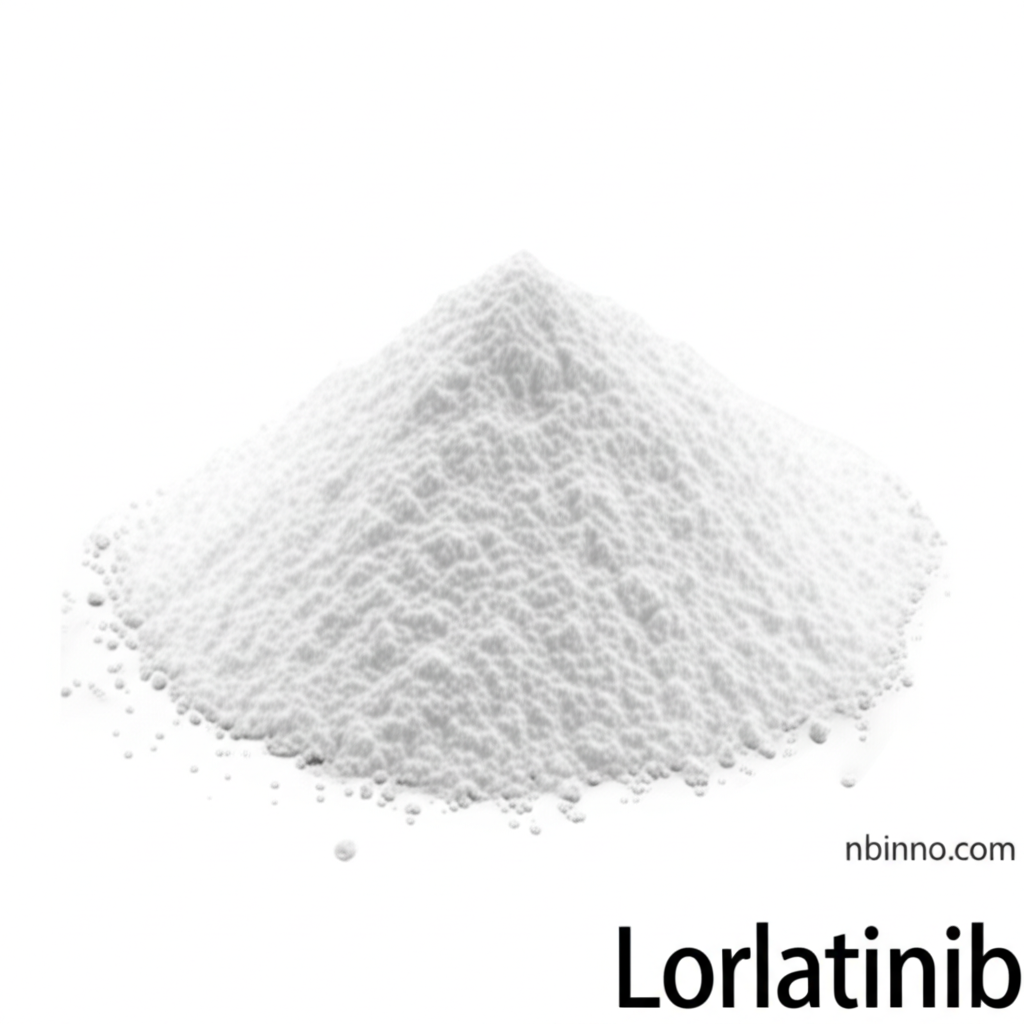Lorlatinib: A Breakthrough in ALK-Positive NSCLC Treatment
Explore the advanced therapeutic benefits and detailed insights into Lorlatinib for ALK-positive non-small cell lung cancer.
Get a Quote & SampleUnderstanding Lorlatinib's Core Value

Lorlatinib
Lorlatinib is a potent third-generation ALK/ROS1 tyrosine kinase inhibitor designed to target specific genetic mutations in non-small cell lung cancer (NSCLC). Its efficacy in overcoming resistance mechanisms and its ability to penetrate the central nervous system make it a crucial option for patients with advanced disease.
- The application of lorlatinib for ALK-positive NSCLC offers a significant advancement in patient care, providing targeted treatment for a specific patient population.
- Detailed lorlatinib clinical trials, such as the CROWN study, demonstrate its superior efficacy and progression-free survival benefits compared to older therapies.
- Understanding the lorlatinib mechanism of action is key to appreciating how it targets cancer cell growth and overcomes resistance mutations.
- Effective management of lorlatinib side effects, including CNS effects and hyperlipidemia, is vital for patient tolerability and treatment adherence.
Key Advantages of Lorlatinib Therapy
Potent Inhibition of ALK/ROS1
Lorlatinib effectively inhibits ALK and ROS1, crucial targets in specific NSCLC subtypes, showcasing its role in targeted therapy.
Overcoming Treatment Resistance
This drug demonstrates a strong ability to overcome various resistance mutations that develop with earlier ALK inhibitors, extending treatment options for patients.
CNS Penetration and Efficacy
Lorlatinib's capability to cross the blood-brain barrier and manage CNS metastases offers a significant advantage for patients with brain involvement, addressing a critical clinical need.
Key Applications of Lorlatinib
ALK-Positive NSCLC Treatment
Lorlatinib is a primary treatment for patients with ALK-positive metastatic non-small cell lung cancer, offering a targeted approach to disease management.
Resistance Management
It serves as a vital option for patients whose cancer has progressed on or is resistant to prior ALK inhibitors, highlighting its role in salvage therapy.
First-Line Therapy Consideration
Clinical studies support lorlatinib's use in first-line settings for ALK-positive NSCLC, offering improved progression-free survival outcomes.
Management of Brain Metastases
Its established efficacy against brain metastases makes it a preferred choice for patients with ALK-positive NSCLC that has spread to the brain.
